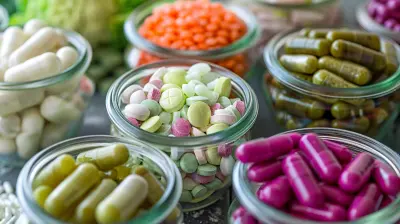The Power of Vitamin E for Combating Free Radical Damage
29 September 2025
Okay, let’s be real. You’ve probably heard of Vitamin E, right? Maybe you’ve seen it listed on the back of a moisturizer bottle, or tucked into the ingredient list of your daily multivitamin. But here’s the big question—do you actually know what Vitamin E does? (No shade if you don’t. You're definitely not alone.)
Today, we’re diving deep—like full-on scuba mode—into the world of Vitamin E and its superhero role in fighting off those pesky little villains called free radicals. Don’t worry, we’ll keep things light, witty, and jargon-free so you won’t need a PhD to keep up. Ready? Let’s get glowing! 💫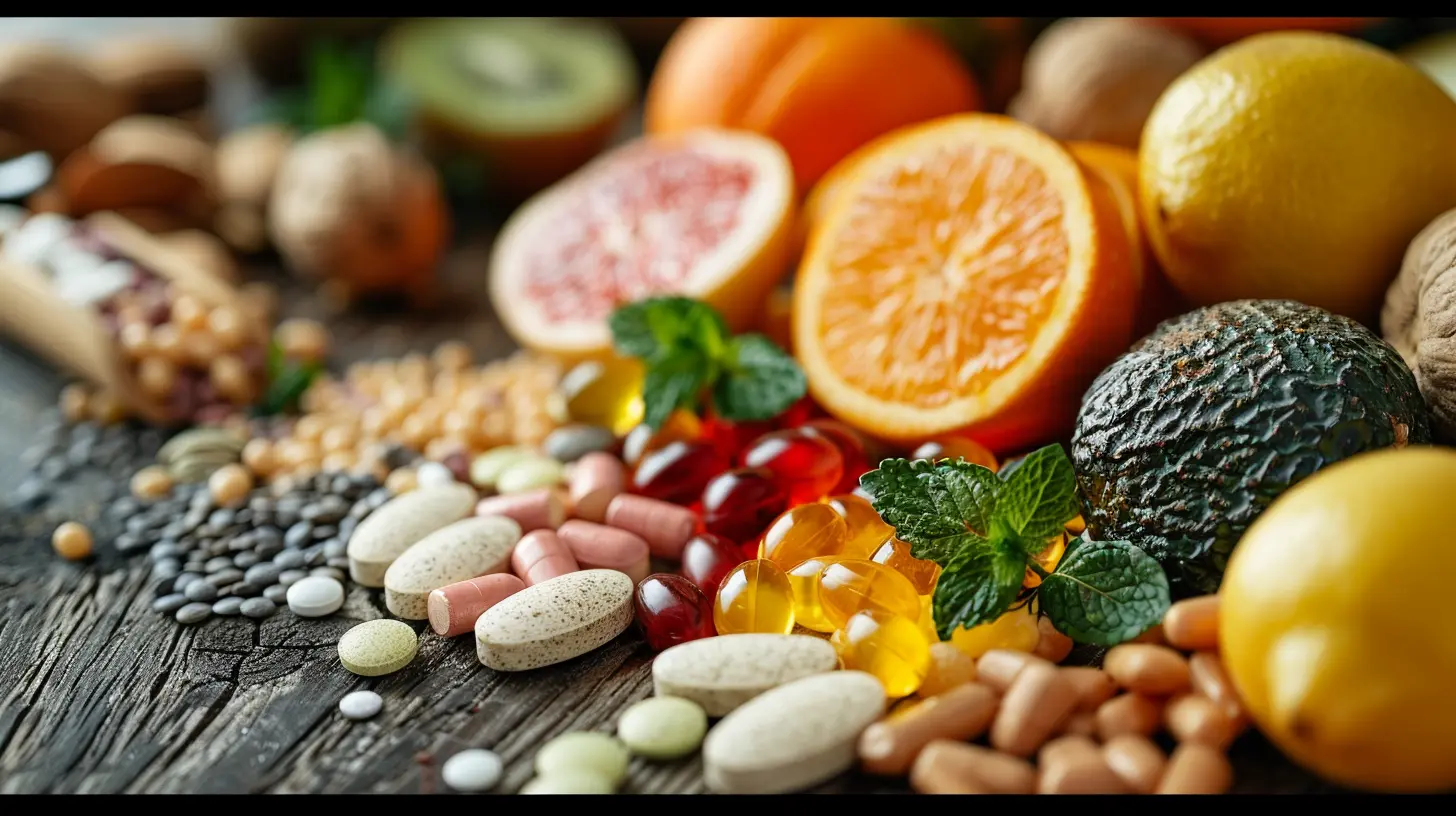
What The Heck Are Free Radicals, Anyway?
Before we get all excited about Vitamin E, we need to understand the enemy.Free radicals sound like a rebellious rock band from the '80s, but in reality, they’re unstable molecules that roam around your body trying to steal electrons from your healthy cells. Rude, right?
Think of free radicals as those annoying people who show up at your party uninvited and start breaking stuff. They cause oxidative stress, which is a fancy way of saying damage to your cells, proteins, and even your DNA. They’re linked to aging (ugh), cancer (double ugh), heart disease, and a bunch of other not-so-great things.
Where do they come from? Oh, they’re everywhere—pollution, fried foods, smoking, UV rays, stress, and even your body’s own metabolic processes.
Now, who do we call to kick those little troublemakers out?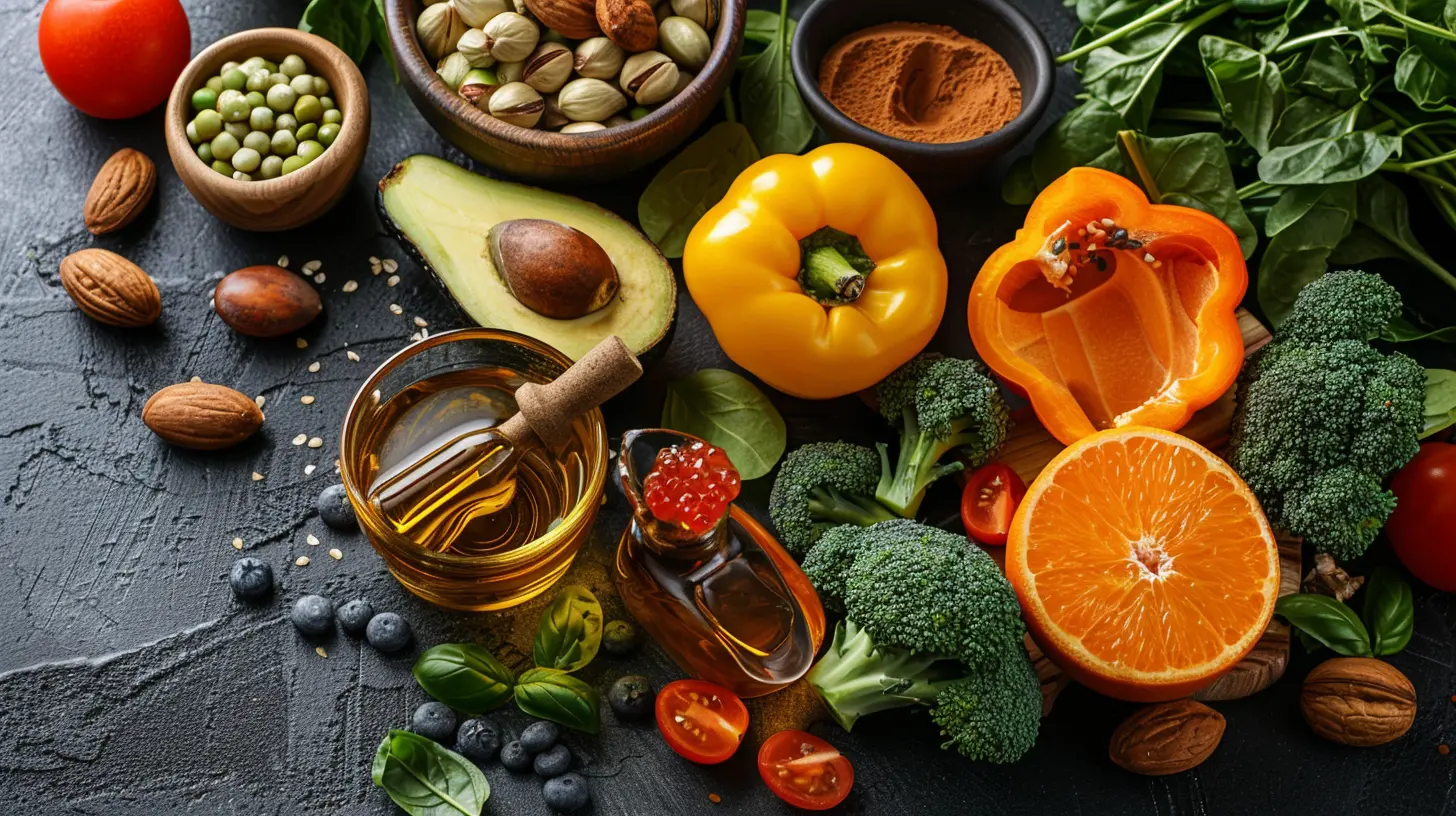
Meet Your Antioxidant Avenger: Vitamin E 🦸♀️
Enter Vitamin E—our cellular bouncer and antioxidant extraordinaire!Vitamin E is a fat-soluble nutrient found in many foods and available as a dietary supplement. Its main gig? Neutralizing free radicals before they can do nasty things to your insides. It basically donates an electron to those unstable molecules, calming them down without becoming unstable itself. Heroic, right?
But that’s not all. Vitamin E is also a bit of a beauty queen. It helps keep your skin glowing, supports immune function, and even plays a role in eye health.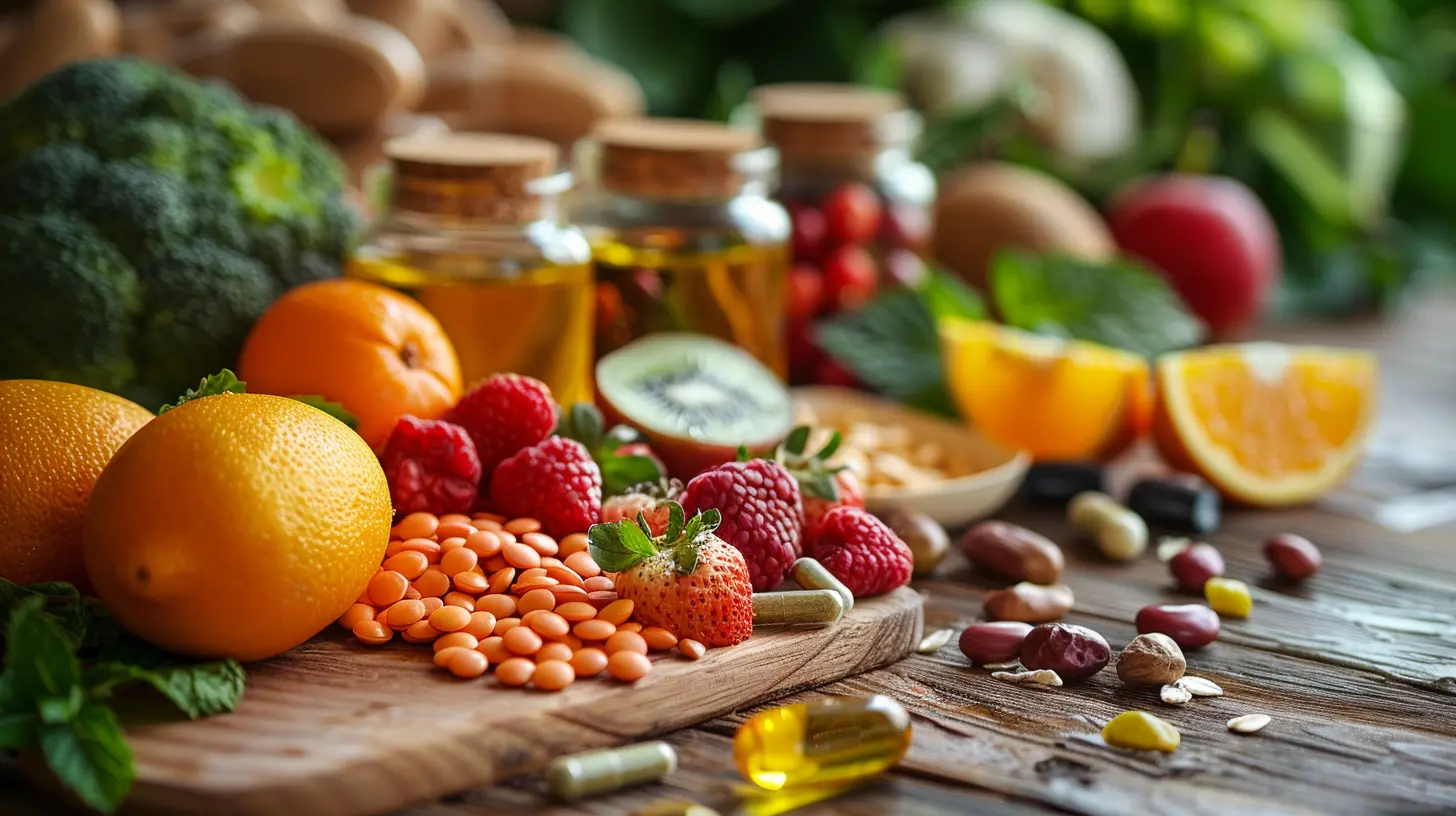
Types of Vitamin E (Yes, There’s More Than One)
Plot twist: Vitamin E isn’t just one compound—it’s actually a whole gang.There are 8 forms in total:
- 4 tocopherols (alpha, beta, gamma, delta)
- 4 tocotrienols (same Greek letters)
Of all these, alpha-tocopherol is the most biologically active in humans. That's the form you’ll usually see in supplements and fortified foods. So yeah, it's the Beyoncé of the group.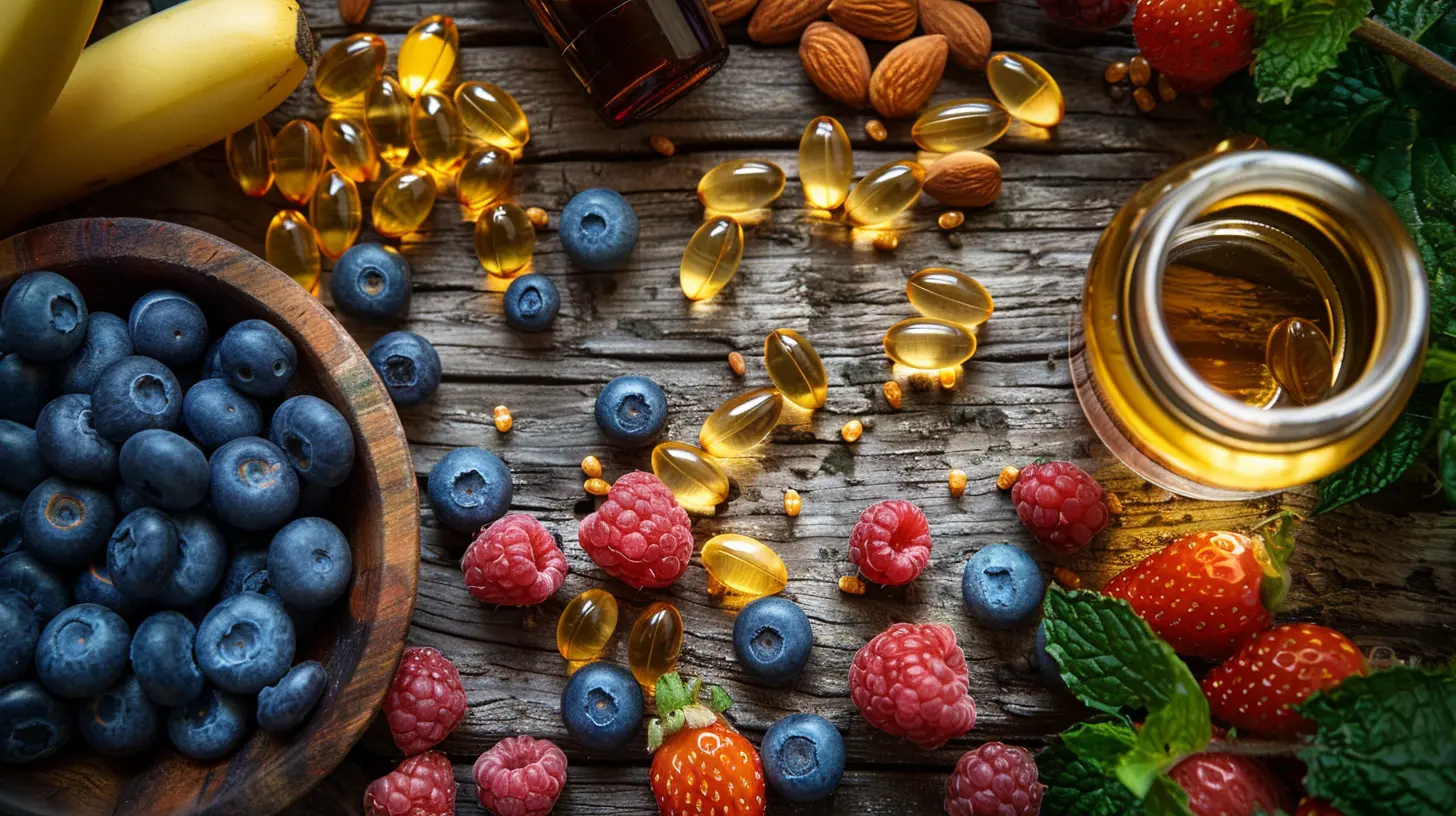
How Vitamin E Fights the Free Radical Mayhem
Okay, let’s break it down.When your body experiences oxidative stress, it’s like your cells are being attacked by microscopic ninjas with sharp little knives. These ninjas (a.k.a. free radicals) slice through cell membranes, mess up proteins, and even damage DNA. Over time, this leads to inflammation, disease, and aging.
Vitamin E acts like a bodyguard, blocking this attack and patching up the cell membranes. It sits within fat-rich areas of cells—especially your skin and brain cells—working like a shield to protect and preserve.
Think of it like wrapping your delicate cell membranes in bubble wrap. Pop-pop, free radical gone. 💥
Health Benefits of Vitamin E (Beyond Battling Free Radicals)
Now that we know what Vitamin E does at the molecular level, let’s zoom out and talk about some of the real-life benefits.1. 🧠 Brain Booster
Vitamin E helps keep your brain’s nerve cells healthy. Some studies suggest it may slow cognitive decline and could be beneficial in reducing the risk of Alzheimer’s disease. While it’s no magic brain pill (sorry, no Limitless moment), it definitely helps protect that noggin of yours.2. 💗 Heart Helper
By preventing oxidation of LDL (“bad”) cholesterol, Vitamin E may reduce your risk of heart disease. Oxidized LDL sticks to artery walls and builds plaque like a gunk monster. Vitamin E helps keep your blood vessels smooth, happy, and clog-free.3. 👀 Eye Candy
Ever heard of age-related macular degeneration? Not fun. Vitamin E is part of a combo pack (with C, zinc, and beta-carotene) that's been shown to support eye health and reduce the risk of vision loss.4. 💁 Skin Savior
Free radicals are notorious for damaging skin cells, leading to wrinkles, dryness, and saggy vibes. Vitamin E to the rescue! It’s used in tons of creams and oils because it helps repair damaged skin, retain moisture, and even out your complexion.5. 🛡️ Immune Support
Vitamin E helps out your immune system by regulating T-cell function and keeping your defenses sharp. So yes, it can help your body fight off infections like a microscopic ninja of your own.How Much Vitamin E Do You Actually Need?
The Recommended Daily Allowance (RDA) for adults is:- 15 mg (22.4 IU) per day
Seems simple enough, right? But here's the kicker: Many people aren’t getting enough Vitamin E, especially if their diet is low in healthy fats. That’s because Vitamin E needs fat to be absorbed properly. So if you’re on a super low-fat diet, your body might be missing out.
Where to Find Vitamin E in Foods 🥑🥜🌻
Say hello to your new grocery list!- Nuts and Seeds – Almonds, sunflower seeds, hazelnuts
- Vegetable Oils – Sunflower, wheat germ, safflower oil
- Greens – Spinach, Swiss chard, kale
- Fruits – Avocados, mangoes, kiwis
- Fish – Salmon, trout
- Fortified Foods – Breakfast cereals, margarine, even some juices
Want a snack idea? Try almond butter on whole-grain toast topped with banana slices. Boom—Vitamin E win!
Should You Take a Supplement?
Short answer: Maybe.If you eat a balanced diet rich in whole foods and healthy fats, you’re probably getting enough. But if you’re dealing with certain health issues, have fat malabsorption disorders, or are on a restricted diet, a supplement might help.
Most Vitamin E supplements contain only alpha-tocopherol, which is great, but don’t forget that balance matters. High doses (>400 IU a day) could interfere with blood clotting or mess with certain medications, so always check with your doc before going supplement-crazy.
Vitamin E + Other Antioxidants = Dream Team
Vitamin E doesn’t like working alone. It pairs beautifully with:- Vitamin C – Regenerates Vitamin E after it’s oxidized. Think of it as the sidekick that reloads the ammo.
- Selenium – Another antioxidant that amps up the defense against free radicals.
- Zinc and Beta-Carotene – Critical for immune and eye health.
Basically, your body loves it when these nutrients work together like the Avengers. So eat a colorful, diverse diet, and you’ll be in good shape.
Busting Some Vitamin E Myths 🕵️
Wait, you didn’t think we’d skip the internet whoppers, did you? Let’s call out some common myths:❌ More Vitamin E = Eternal Youth
Nice try. It's helpful, yes, but it's not a magic fountain of youth. Antioxidants slow aging—they don't halt it.❌ Only Your Grandma Needs It
Nope. Everyone, from Zoomers to Boomers, can benefit from Vitamin E. It's not just a supplement for the 60+ crowd.❌ Vitamin E is Only for Skin
While it's amazing for skin, it's also vital for your brain, heart, eyes, and immune system. It's literally the Swiss Army knife of vitamins.Final Thoughts: Should You Care About Vitamin E?
Um… absolutely yes.Vitamin E might not be the flashiest nutrient in the wellness world, but it’s definitely one of the hardest workers. It’s your body’s personal bodyguard against free radicals, slowing aging, supporting immunity, and keeping you looking and feeling fresh.
So whether you’re loading up on almonds, slathering on Vitamin E oil, or just appreciating it quietly in your multivitamin—give this nutrient the love and respect it deserves.
Because when it comes to fighting free radical damage, Vitamin E isn’t just power—it’s pure perfection.
TL;DR Summary (For the Skimmers in the Back)
- Free radicals = cellular chaos.- Vitamin E = the antioxidant ninja that shuts them down.
- Helps skin, brain, heart, eyes, and immune function.
- Found in nuts, seeds, oils, leafy greens, and some fruits.
- You need about 15 mg/day.
- Supplements can help, but food is best.
- Works better with a team (Vitamin C, selenium, etc.)
- Less hype, more health.
Now, go grab a handful of almonds and toast to cellular peace.
all images in this post were generated using AI tools
Category:
VitaminsAuthor:

Eileen Wood
Discussion
rate this article
1 comments
Cruz Perez
Vitamin E is a potent antioxidant that plays a crucial role in protecting cells from free radical damage. Its ability to neutralize harmful molecules helps combat oxidative stress, reducing the risk of chronic diseases and supporting overall health. Incorporating vitamin E-rich foods, like nuts and seeds, can enhance your wellness.
October 15, 2025 at 3:00 PM

Eileen Wood
Thank you for highlighting the importance of vitamin E! Its antioxidant properties truly make it essential for protecting our cells and promoting overall health. Incorporating vitamin E-rich foods is a great way to support wellness!

